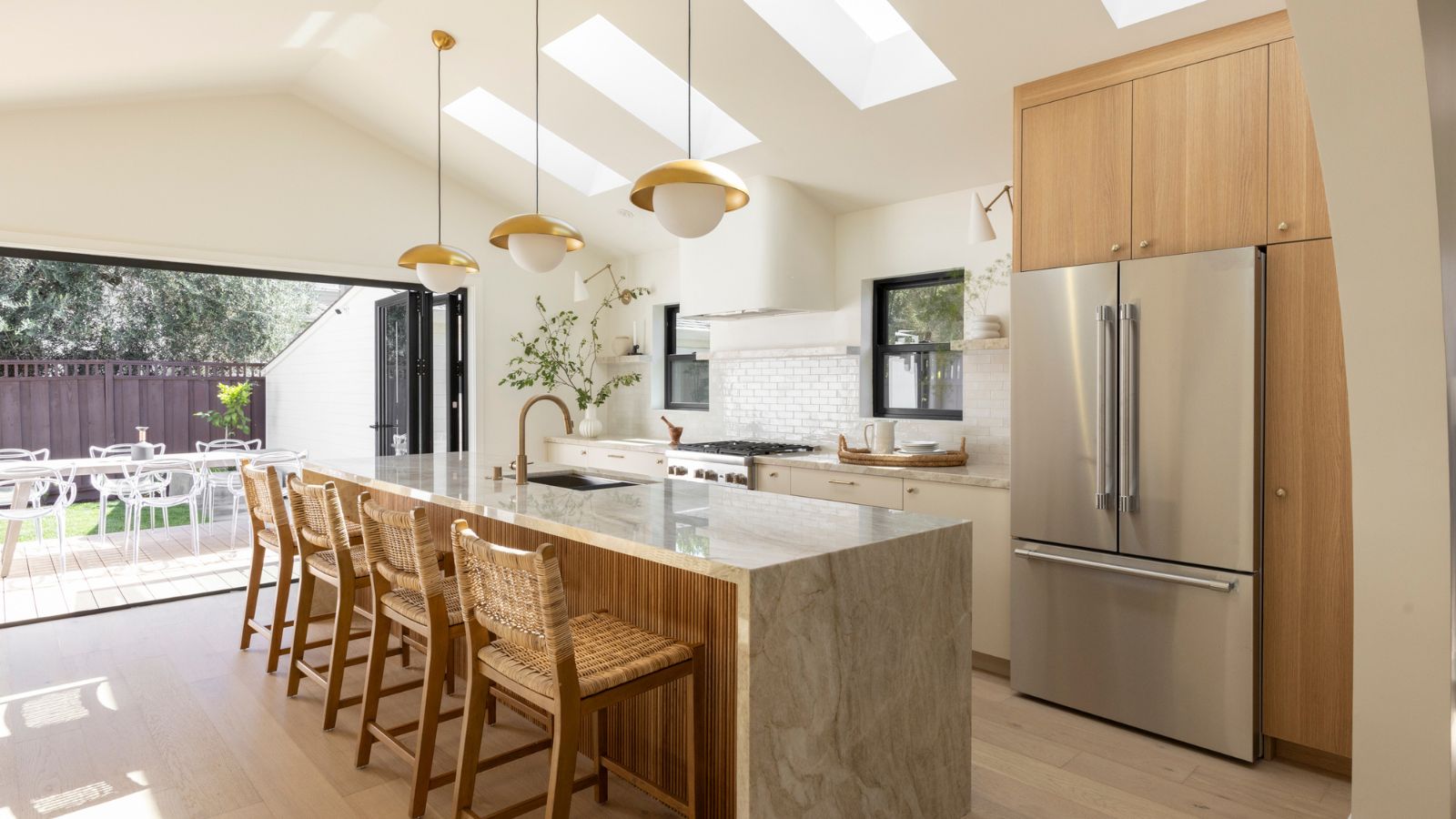
Design expertise in your inbox – from inspiring decorating ideas and beautiful celebrity homes to practical gardening advice and shopping round-ups.
You are now subscribed
Your newsletter sign-up was successful
Want to add more newsletters?

Twice a week
Homes&Gardens
The ultimate interior design resource from the world's leading experts - discover inspiring decorating ideas, color scheming know-how, garden inspiration and shopping expertise.

Once a week
In The Loop from Next In Design
Members of the Next in Design Circle will receive In the Loop, our weekly email filled with trade news, names to know and spotlight moments. Together we’re building a brighter design future.

Twice a week
Cucina
Whether you’re passionate about hosting exquisite dinners, experimenting with culinary trends, or perfecting your kitchen's design with timeless elegance and innovative functionality, this newsletter is here to inspire
Breathing clean air while spending time at home is essential, but which is better in the toss-up between air scrubber vs. air purifier?
While both improve indoor air quality, they do so in very different ways – and in very different situations. Whether you’re trying to breathe easier during allergy season or recover from a renovation or flood, it's important to choose the right home upgrade.
We spoke to industry experts who regularly work with air scrubbers and the best air purifiers to shed light on the key differences and help you decide what's best for your home.
Air scrubber vs. air purifier: a comparison
What's the difference?
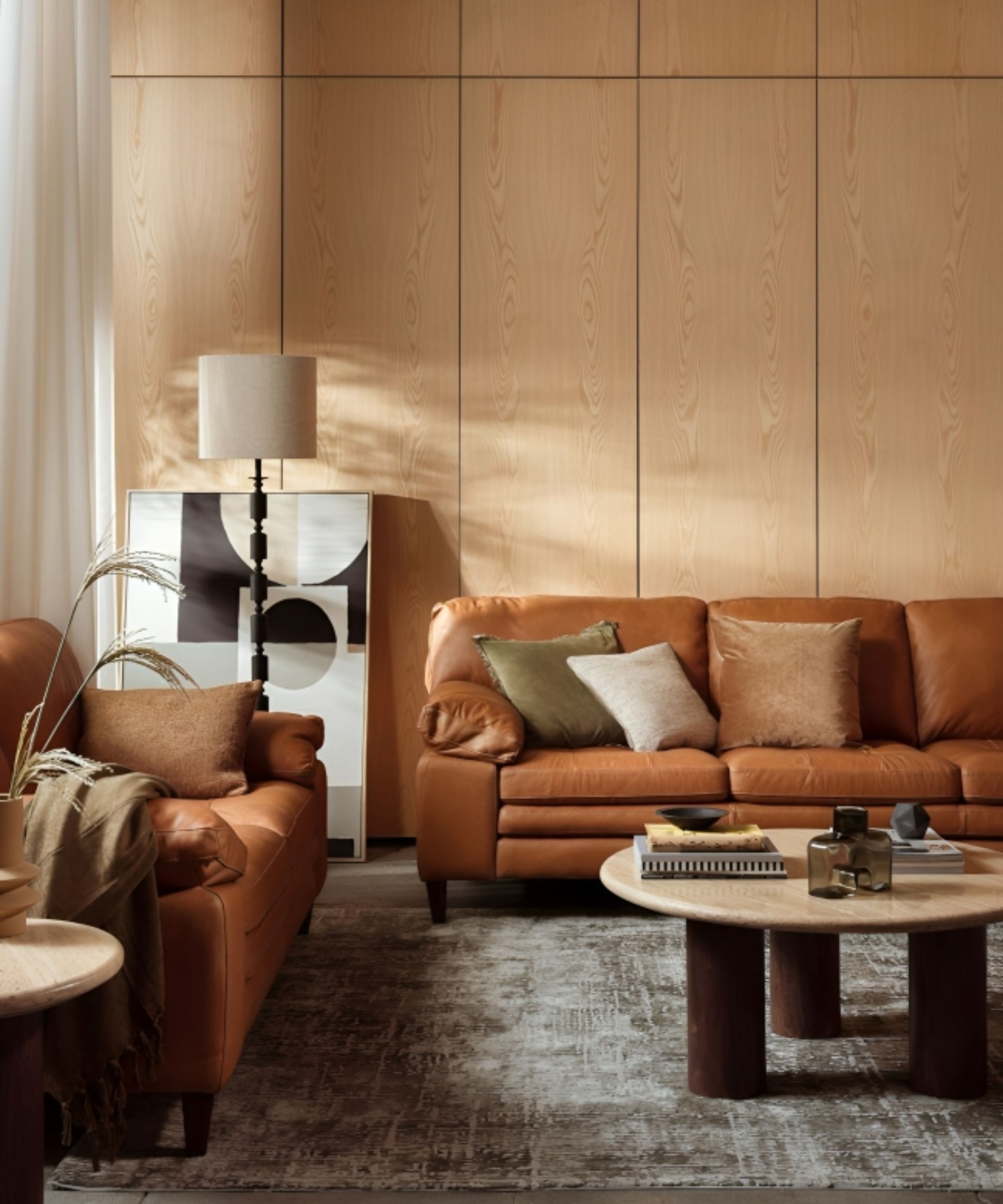
Air purifiers filter the air while air scrubbers neutralize contaminants in the air and on surfaces.
Despite their similar-sounding names, air scrubbers and air purifiers improve your indoor air quality in different ways.
‘Air purifiers are built to improve indoor air quality over time,’ says Alex Panasyuk, COO at Provision Property Restoration. ‘The good ones use HEPA filters to capture fine particles from dust, pollen, pets, and sometimes VOCs. They’re ideal for ongoing use in bedrooms and living areas.’
Air scrubbers, on the other hand, are far more active in how they work. ‘They release charged ions or oxidizers into the air,’ explains Omero Flores, CEO of American AC & Heating.
‘These molecules neutralize contaminants not just in the air, but on surfaces too – like countertops and door handles,’ he adds. This level of cleaning can avoid many of the common mistakes compromising air quality, and can be a more guaranteed way to have consistently clean air.
Design expertise in your inbox – from inspiring decorating ideas and beautiful celebrity homes to practical gardening advice and shopping round-ups.
Michael Zohouri, founder of Pyramid Eco, sums it up neatly, explaining, ‘In simple terms, purifiers trap, and scrubbers treat.’
‘So the main difference is in the way they work and the purposes of use,’ adds Jimmy Hiller, CEO of Happy Hiller. ‘Air scrubbers are used to get rid of odors, tackle VOCs and germs, while purifiers filter the air that passes through them.’
Investing in an affordable gadget to test your air quality will help determine whether you need a small air purifier or a serious air scrubber.
The benefits of air scrubbers
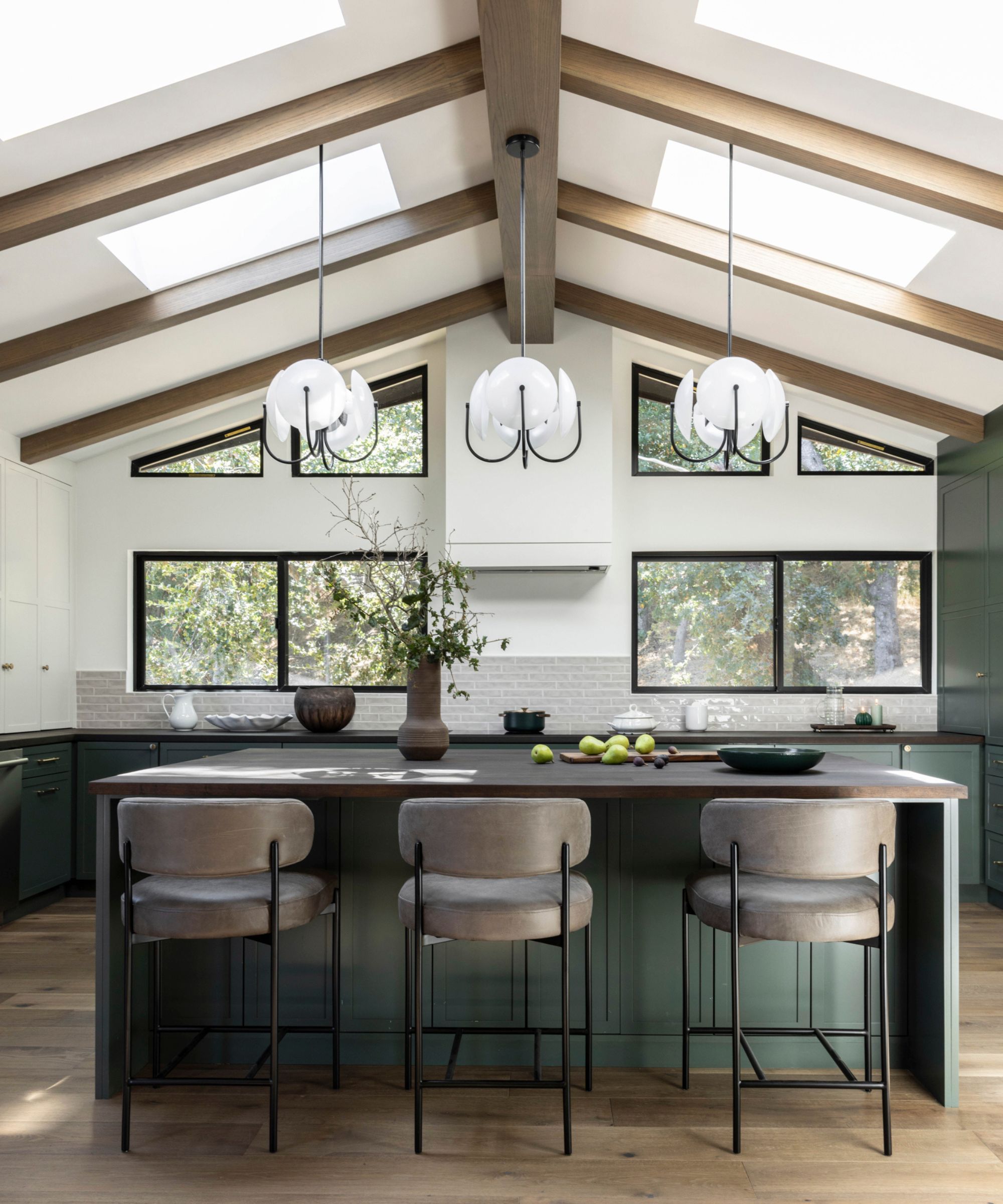
Air scrubbers are designed for more serious air purification, cleansing the air and the surfaces across your home.
Air scrubbers are the go-to solution for more serious air quality issues – think smoke damage, post-renovation debris, and getting rid of black mold.
‘You want an air scrubber when your air quality is compromised big time,’ says Alex. ‘If you’ve had a flood, found mold, or dealt with fire damage, scrubbers are built for that job. We use commercial-grade models during restoration projects because they clean air fast and thoroughly.’
Omero notes that they’re particularly useful in homes with immune-compromised residents or persistent odors, adding, ‘Scrubbers actively kill or neutralize bacteria, viruses, mold, and VOCs. They work continuously and require very little maintenance once installed.’
Maintenance will be as simple as giving it a clean at the same time as you clean your HVAC system. And because of this integration, they also offer whole-home coverage.
Jimmy adds that while some models are loud and pricey, they can be surprisingly efficient. ‘Run every day, they can improve indoor air significantly – especially in homes with pets, allergies, or high humidity. Just remember, they only work when the HVAC system is running.’
Knowing when you should turn on your AC might then be influenced by when you need air purification, and having that functionality ready can make all the difference in areas with lower air quality.
Michael agrees that scrubbers are ideal in more demanding environments. ‘If you’re renovating a room or cleaning up after water damage, you’re going to need an air scrubber. They’re built to actively break down harmful particles released in those scenarios.’
The benefits of air purifiers

An air purifier can improve allergies and asthma, and can be taken from room to room.
Air purifiers are typically quieter than air scrubbers, more portable, and designed for everyday use, making them the best option for most households.
‘For most homes, a purifier is the easier option,’ says Michael. ‘They handle common issues like dust, pet dander, and seasonal allergies. Generally, they also run quieter and require less maintenance.’ Cleaning an air purifier is a pretty straightforward task, and an easy way to make sure yours can last for years.
Purifiers are especially beneficial for people with asthma or allergies, and as somebody who tests these appliances and has been using an air purifier in my bedroom, I can confirm that it's basically cured my allergies and asthma.
‘They’re highly effective at capturing airborne allergens and smoke,’ says Omero. ‘And because they’re portable and budget-friendly, they’re a smart solution for specific rooms like bedrooms or home offices.’
If you’re in a home without ductwork, Jimmy points out that scrubbers won’t even be an option: ‘A purifier is ideal in that case.’ Plus, as they're so small, they can be one of the best ways to improve air quality when living in a city.
Alex agrees that purifiers are a great long-term investment for general air quality maintenance: ‘If you’ve got pets, allergies, or bad odors, a HEPA-based purifier can make a big difference.’
Which should you buy?

Air purifiers are cheaper and more portable, but an air scrubber will provide whole-home coverage and more effective purification.
The best choice depends entirely on your home’s needs. Air purifiers are ideal for everyday maintenance, especially in smaller, targeted spaces. They’re affordable, easy to use, and effective for common concerns like pollen and pet hair. It's an effective trick to prevent dust at home.
Air scrubbers, meanwhile, are better suited to homes with more significant air quality issues or for post-renovation and restoration work. ‘If you’re dealing with mold, strong odors, or want protection throughout the entire home, a scrubber is the better choice,’ says Jimmy.
‘But remember, they only run when your HVAC does – so if you don’t use heating or AC often, a plug-in purifier may be more effective day-to-day,’ he adds. This is why smaller air purifiers like the Coway Airmega Mighty at Amazon (which we tested and loved) are so handy, as you can carry them to different rooms when needed.
Ultimately, you may not need to choose. ‘Combining systems can offer the best of both worlds,’ Omero adds. ‘For example, install a whole-home scrubber through your HVAC, then use portable HEPA purifiers in bedrooms. You get powerful protection without overdoing it.’
Whichever route you take, don’t forget to clean your air purifier and air scrubber and remember to change filters. As Michael reminds us: ‘Even the best purifier or scrubber won’t do much if it hasn’t been maintained.’
What to shop
It's worth browsing the selection of air scrubbers at Home Depot to suit different homes and HVAC systems.
As home tech editor, our team of product testers and I have reviewed 17 air purifiers, and these are the three I personally recommend:
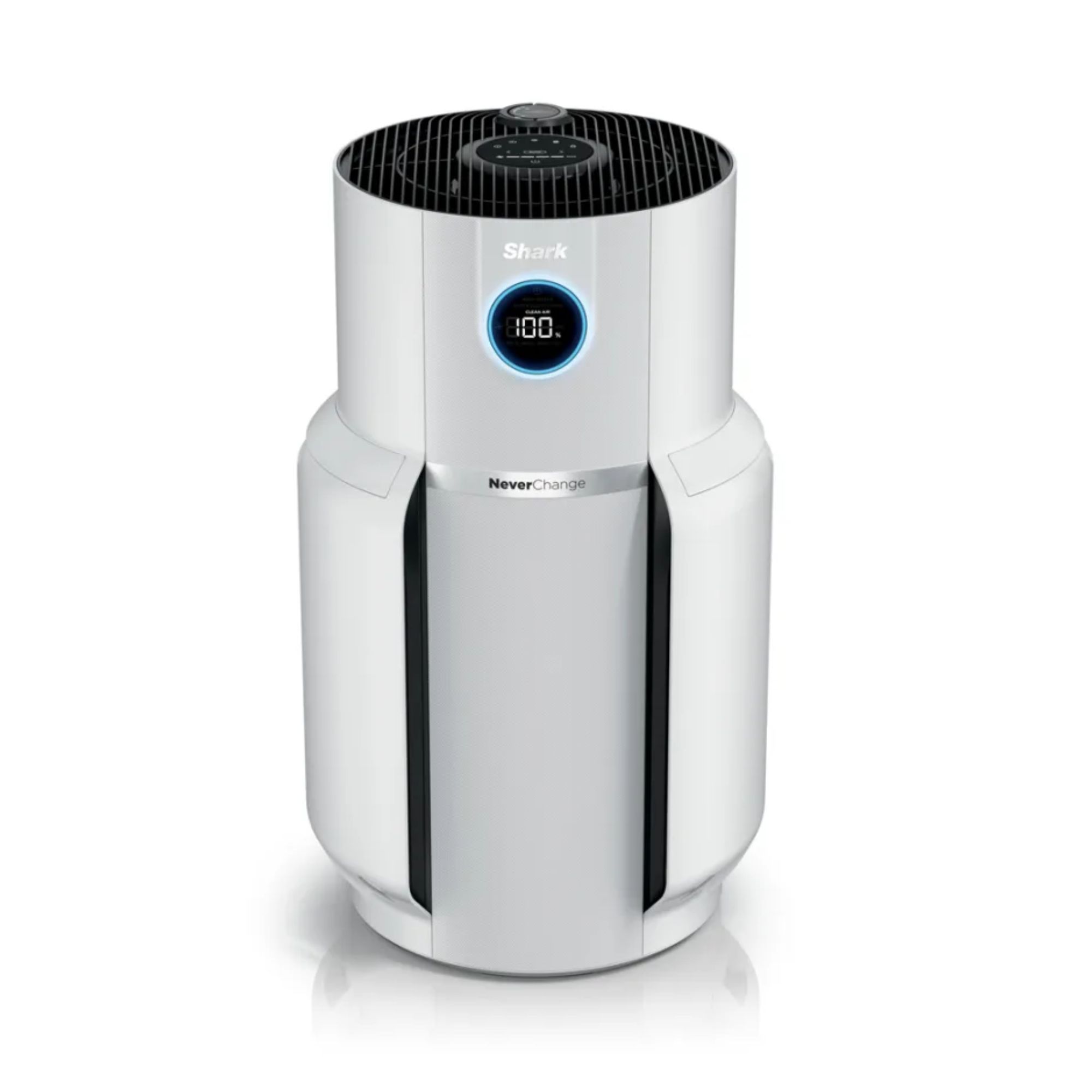
I've been using the Shark NeverChange MAX in my home for over a year. There's a reason it's our best-tested purifier: it purifies large spaces (1,400 sq ft) quickly, it has odor-neutralization to leave a fresh scent, and it's much more reasonably priced than other models that do the same. It also has washable filters that avoid you having to replace the inner HEPA filter for up to five years.
Read more in my full Shark NeverChange MAX review.
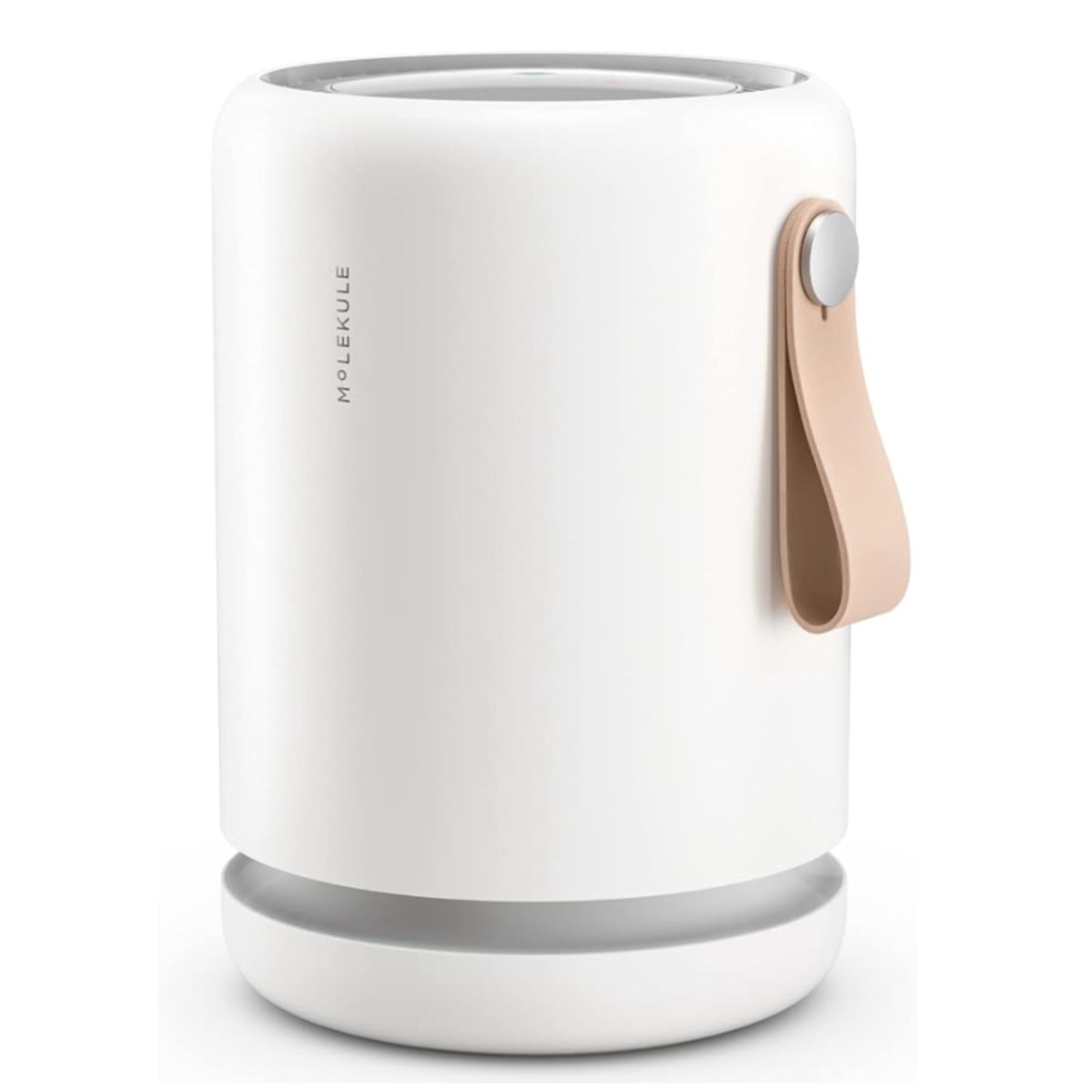
The Molekule Air Mini+ (and its bigger sister the Molekule Air Pro) have unique technology that can actually destroy harmful pollutants, rather than just capturing them. It's why Molekule's air purifiers are among the only in the market that are FDA-approved as Class II medical devices. I've been using it in my bedroom for around six months, and it's basically eliminated my allergy and asthma flare-ups, but it's only ideal for spaces up to 250 sq ft.
Read more in my full Molekule Air Mini+ review.
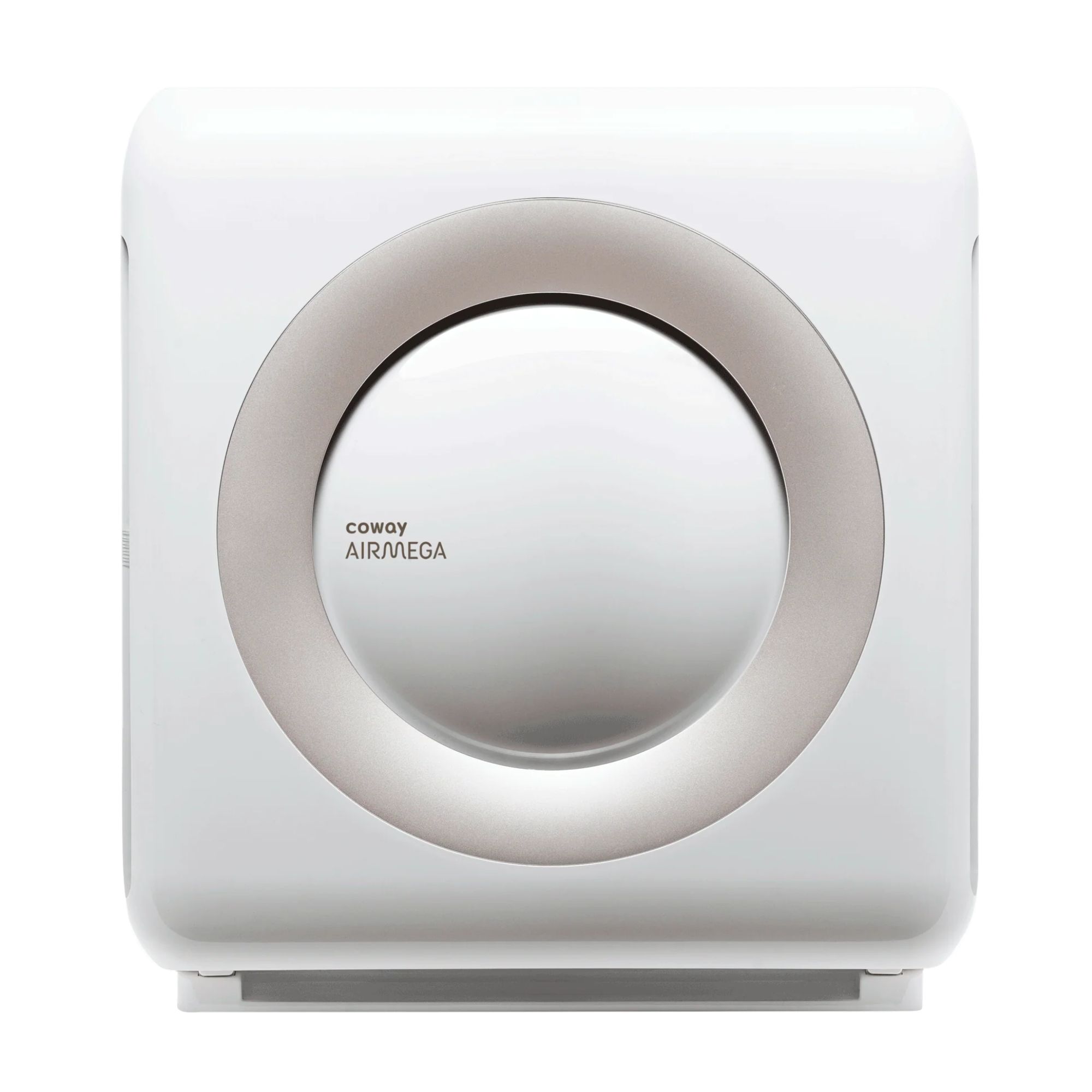
Coway are a market leader in the world of air purifiers, and the Coway Airmega Mighty didn't disappoint on test. Covering 361 square feet, the compact purifier did a great job at removing pollutants, fighting odors and releasing clean air without being too loud.
Read more in our full Coway Airmega Mighty review.
Meet the experts

After spending years in commercial construction management, Alex founded Provision Property Restoration with two friends. Over a decade later, they've established themselves as the premier standard for residential and commercial restoration.

American AC & Heating is a 50-year old business run by Omero Flores and his father, who know the ins and outs of AC systems, ducts, thermostats, and coils.

Jimmy Hiller is the founder and president of Happy Hiller, a leading provider of plumbing, HVAC, and electrical services across multiple states.

Michael Zohouri leads the retrofitters at Pyramid Eco as its founder, bringing over a decade of experience to the company. His expertise spans energy-efficient retrofitting projects, including insulation, solar, and heat pump installations.
Next, learn how to choose the right air purifier for your home.

Dan is the Home Tech Editor for Homes & Gardens, covering all things cleaning, sound, smart home, and air treatment across the Solved section.
Having worked for Future PLC since July 2023, Dan was previously the Features Editor for Top Ten Reviews and looked after the wide variety of home and outdoor content across the site, but their writing about homes, gardens, tech and products started back in 2021 on brands like BBC Science Focus, YourHomeStyle and Gardens Illustrated.
They have spent more than 400 hours testing and reviewing vacuums, soundbars and air purifiers for Homes & Gardens.
Dan has a BA in Philosophy and an MA in Magazine Journalism. Outside of work, you'll find them at gigs and art galleries, cycling somewhere scenic, or cooking up something good in the kitchen.
